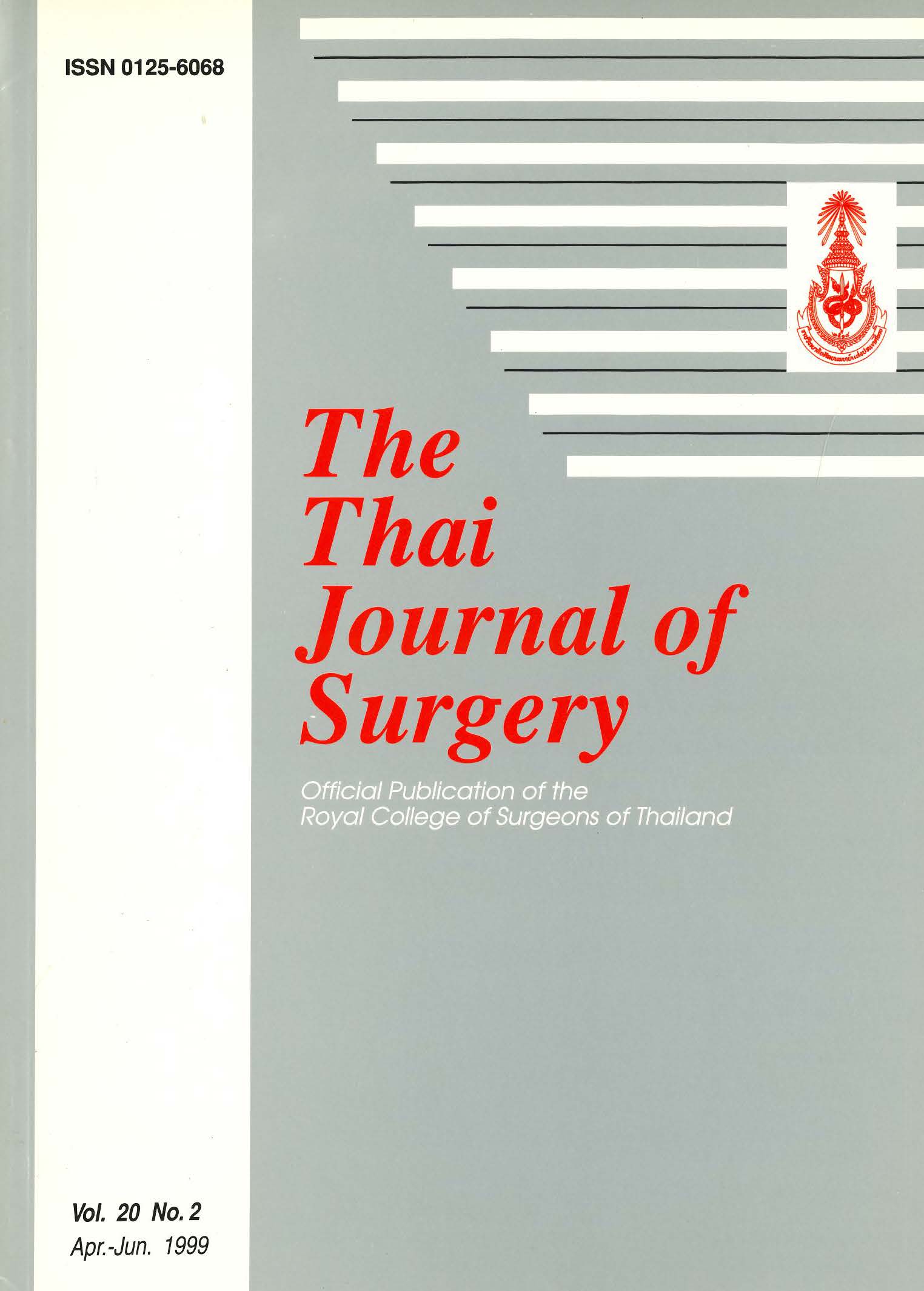Factors Associated with the Preference to Undergo Mastectomy or Breast Conservation Surgery for the Treatment of Breast Cancer in Patents of A Tertiary Care Hospital Breast Clinic
Abstract
Objectives: 1) To identify significant demographic and certain psycho-social factors associated with the preference to undergo mastectomy or breast conservation surgery for the treatment of breast cancer in a sample of patients seen at a tertiary care hospital breast clinic. 2) To identify significant demographic and psycho-social factors associated with the preference to again undergo mastectomy or breast conservation surgery and the felt need for improvement of the external appearance by using prosthesis inserted beneath their brassier (PIB) or breast reconstruction.
Methods: A questionnaire consisting of items measuring demographic variables, preference to undergo mastectomy or breast conservation surgery, the felt need for PIB or breast reconstruction, perceived or actual problems with family, spouse, marriage, and self-confidence or self / body-image, was administered to a sample of patients falling into 2 groups: those with benign or malignant breast disease not yet surgically treated (203 patients) and those with breast cancer within 3 months or later than 1 year after mastectomy (60 patients). In all 263 questionnaires were distributed and returned. Data were analyzed separately for the two groups, using univariate analysis (chi-square), and multiple logistic regression analysis to identify factors associated with treatment preference for the untreated group, and canonical correlation analysis to identify factors associated with the combination of treatment preference and the felt need for PIB or breast reconstruction for the mastectomy group.
Results: Sixty-nine per cent of the untreated group preferred breast conservation to mastectomy for the treatment of breast cancer. Univariate and subsequent multiple logistic regression analysis for the untreated group revealed that only age (<40 years), problems with self/ body image (yes), marital status (single) and occupation (student or government officials) were significantly associated with the preference to undergo breast conservation surgery (odds rations [95% confidence interval] were 2.94 [1.5-5.75], 4.18 (1.88-9.31], 2.27 (1.14-4.52] and 2.68 [1.21-5.93)] respectively) In contrast, 71 per cent of the mastectomy group preferred mastectomy to breast conservation, through 45 per cent felt the need for PIB or breast reconstruction. Factors associated with preference to undergo breast conservation and need for PIB or breast reconstruction were age (<40 years), educational status (higher than high school), and (perceived) problems with self image (yes) (canonical loadings 0.35, 0.51, 0.61, respectively, overall canonical correlation = 0.64 (P-value 0.019, first root)).
Conclusion: Factors associated with the preference for mastectomy or breast conservation for the treatment of breast cancer include age, problems with self/ body image, marital status and occupation, in patients not yet treated for their breast problems. In post mastectomy patients, on the other hand, factors associated with the treatment preference and felt need for PIB or breast reconstruction include age, educational status, and problems with self/body image.
References
2. Steinberg MD, Juliano MA, Wise L. Psychological outcome of lumpectomy versus mastectomy in the treatment of breast cancer. Am J Psychiatry 1985; 142:34-9.
3. Wolberg WH, Romsaas EP, Tanner MA, Malec JF. Psycho-sexual adaptation to breast cancer surgery. Cancer 1989; 63:1645-55.
4. Bard M, Sutherland AM. Psychological impact of cancer and its treatment. Cancer 1955: 8:656-72.
5. Kieman PD, Hubert PD, Beahrs CH, Martin MJ. Patient acceptance of mastectomy for cancer. Am J Surg 1981; 142:517-8.
6. Taylor SE. Lichtman RR, Wood JV, Bluming AZ, Dosik GM, Leibowitz RL. Illness-related and treatment-related factors in psychological adjustment to breast cancer. Cancer1985;55:2506-2513.
7. Kemeny MIM, Wellisch DK, Schain WS. Psychosocial out-come in a randomized surgical trial for treatment of primary breast cancer. Cancer 1988: 62:1231-7.
8. Watson M, GreerS, Blake S, Shrapnell K. Reaction to a diagnosis of breast cancer. Relationship between denial, delay, and rates of psychological morbidity. Cancer 1984;53:2008-12.
9. Schain WS, Wellisch DK, Pasnau RO, Landsverk J. The sooner the better. A study of psychological factors in women undergoing immediate versus delayed breast reconstruction. Am J Psychiatry 1985: 142:44-6.
10. Schover LR. The impact of breast cancer on sexuality, body image, and intimate relationships. CA Cancer J Clin 1991; 41:112.
11. Sanger CK, Reznikoff M. A comparison of the psychological effects of breast-saving procedures with the modified radical mastectomy. Cancer 1981:48:2341-6.
Downloads
Published
How to Cite
Issue
Section
License
Articles must be contributed solely to The Thai Journal of Surgery and when published become the property of the Royal College of Surgeons of Thailand. The Royal College of Surgeons of Thailand reserves copyright on all published materials and such materials may not be reproduced in any form without the written permission.



